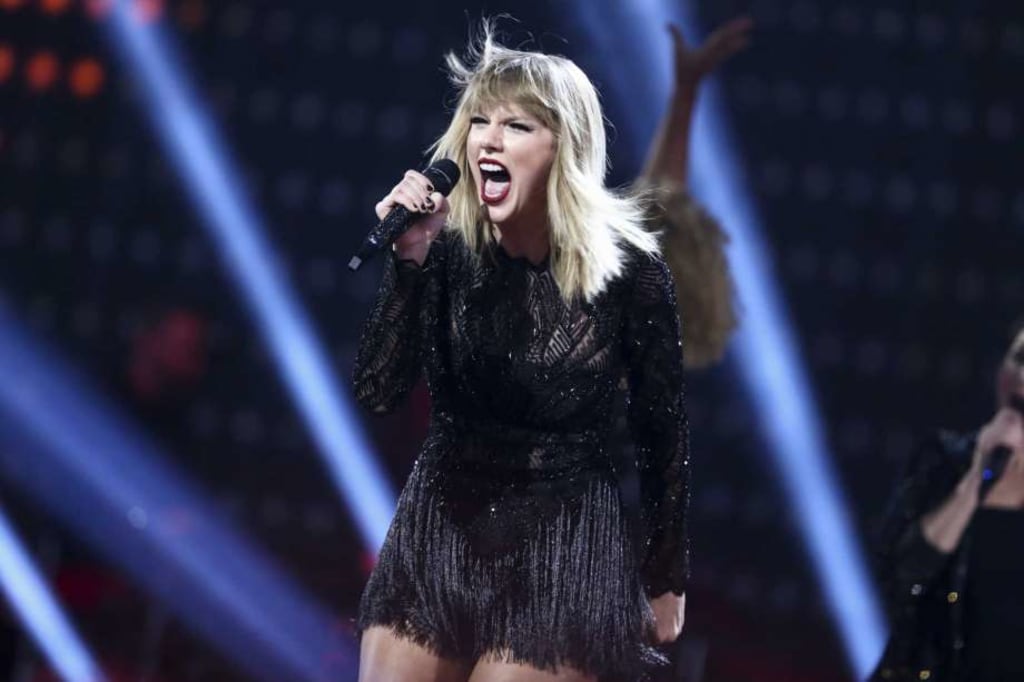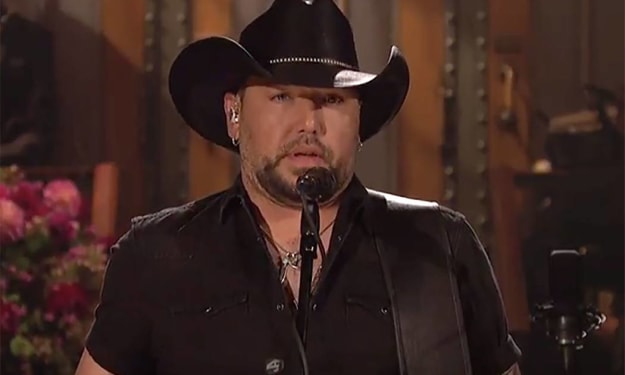ACLU Defends Blogger Who Suggests White Supremacy Connection with Taylor Swift
ACLU Uses Swift Song Titles in Letter Rebuking Swift's Legal Team

Apparently, it's not a great time to be Taylor Swift right now.
Don't get me wrong; Swift's life is undoubtedly comfortable from a superficial standpoint. She's a multi-million selling singer, with sold out concerts throughout the globe. She's probably quite able, should she desire to do so, to retire at her current ripe old age of 27 and not do anything else for the rest of her life and still maintain a pretty decent lifestyle. Outside of some very high profile romances (and friendships gone bad — we're looking at you, Katy Perry), she's even been able to keep a good deal of her private life relatively private — a rarity considering the pervasiveness of today's media.
However, Taylor Swift's reputation might be under fire after a blogger for a small California site called PopFront Magazine has called upon the singer to denounce the white supremacists who "look to her as their pop icon," according to the article, "Swiftly to the alt-right: Taylor subtly gets the lower case kkk in formation."
Meghan Herning, the author of the article, outlines the potential connections between white supremacy and Swift, particularly since the fiasco that was Kanye West stealing her moment at the 2009 Video Music Awards. In particular, outside of what appears to be an impressively researched history of the Nazi and Eugenics movements, she discusses the lyrics and video to Taylor Swift's first release off her new album, "Look What You Made Me Do."
Beyond showcasing her figure in formfitting outfits that appear to suggest a sort of sexual confidence that hasn't always been apparent in her videos, the video also features Swift, flanked by two women who appear to be dressed as officers, reciting a range of lyrics. In the article, Herning features the image of Swift with these women and directly underneath, posts a similar shot of Hitler with two of his officers.
Herning, like Breitbart News, which jumped on the song the day it dropped on radio stations, also examined the lyric, "but I got smarter, I got harder in the nick of time. Honey, I rose up from the dead, I do it all the time.” She noted that Breitbart made the link between this lyric and a loophole for the purchase of AR-15s, which is a modern sporting rifle, according to the National Shooting Sports Foundation. Herning also suggested that this lyric, like others, also spoke to "closeted racists."
Finally, Herning said that Swift's reticence to actually discuss any sort of politics or social issues could ultimately be harming her image, particularly in the light of the allegedly racist overtones of videos like "Look What You Made Me Do."
"When one of the most popular female artists in the world declines to join the many in her field in voicing for progressive politics, it could well be construed as her lending support to the voices rising against embracing diversity and inclusion emblematic of Trump supporters," Herning wrote. "Further, ["Look What You Made Me Do"] attacks other pop stars in the same way that the alt-right has attacked the “liberal” media."
It would appear that Herning's words have reached Taylor Swift, or at the very least, Taylor Swift's camp. Swift's lawyers sent a letter demanding that PopFront Magazine retract Herning's article, and condemned what was said about their client.
"One thing is certain: you are requiring Ms. Swift, but not any other celebrity or musician, to loudly denounce white supremacy and you do not accept her previous condemnations as good enough. Given your apparent animus and malice toward Ms. Swift, the intent to cause harm to Ms. Swift is clear," the letter reads, according to Mashable.
Here's the problem with the statement that Swift is "required" to "loudly denounce white supremacy." According to Independent, Taylor Swift has never publicly denounced her fans that might be white supremacists. However, artists such as Katy Perry and Lady Gaga have.
PopFront Magazine also released a statement supporting its writer and the First Amendment as a whole. Its condemnation of what is perceived to be bullying tactics by Swift's team was resounding.
"At a time when the press is under constant attack from the highest branches of government, this cease and desist letter is far more insidious than Swift and her lawyer may understand," the online magazine wrote in an official statement.
"The press should not be bullied by legal action nor frightened into submission from covering any subject it chooses. Swift’s scare tactics may have worked in the past, but PopFront refuses to back down because we believe the First Amendment is more important than preserving a celebrity’s public image," the statement continues.
The American Civil Liberties Union team was swift to defend Herning and PopFront Magazine.
In the ACLU's letter to Swift's legal team, dated November 6, Michael Risher, Senior Staff Attorney, Christine Sun, Legal and Policy Director, and Matt Cagle, Technology & Civil Liberties Policy Attorney, point out that because Herning's post is mostly not even about Swift and, outside of the research, is opinion based, the post cannot be deemed defamatory.
"If the blog post’s interpretation of Ms. Swift’s lyrics were defamatory, your letter’s slanted interpretation of that post would be, too (and more so, since you misquote the post)," the ACLU team wrote. "The First Amendment and our nation’s “profound national commitment to the principle that debate on public issues should be uninhibited, robust, and wide-open” prevents these types of differences of opinion from being censored by the threat of defamation lawsuits. Sullivan, 376 U.S. at 270."
In spite of the serious overtones of their letter, the ACLU team was not afraid to have a little fun.
"Criticism is never pleasant, but a celebrity has to shake it off, even if the critique may damage her reputation," the letter reads in part.
In an ACLU press release, Cagle continued to pepper his words with Swift song titles.
"Not in her wildest dreams can Ms. Swift use copyright law to suppress this exposure of a threat to constitutionally protected speech," he said.
At the end of Herning's article, Herning suggests that if Swift does not wish to be supported by white supremacists, she needs to actually take a stand in order to clear any misconceptions that might exist about her.
"She needs to state her beliefs out loud for the world — no matter what fan base she might lose, because in America 2017, silence in the face of injustice means support for the oppressor," Herning said at the close of her article.
About the Creator
Christina St-Jean
I'm a high school English and French teacher who trains in the martial arts and works towards continuous self-improvement.






Comments
There are no comments for this story
Be the first to respond and start the conversation.